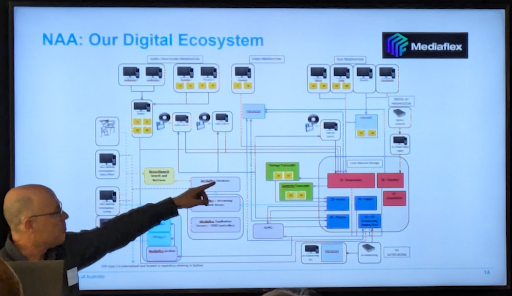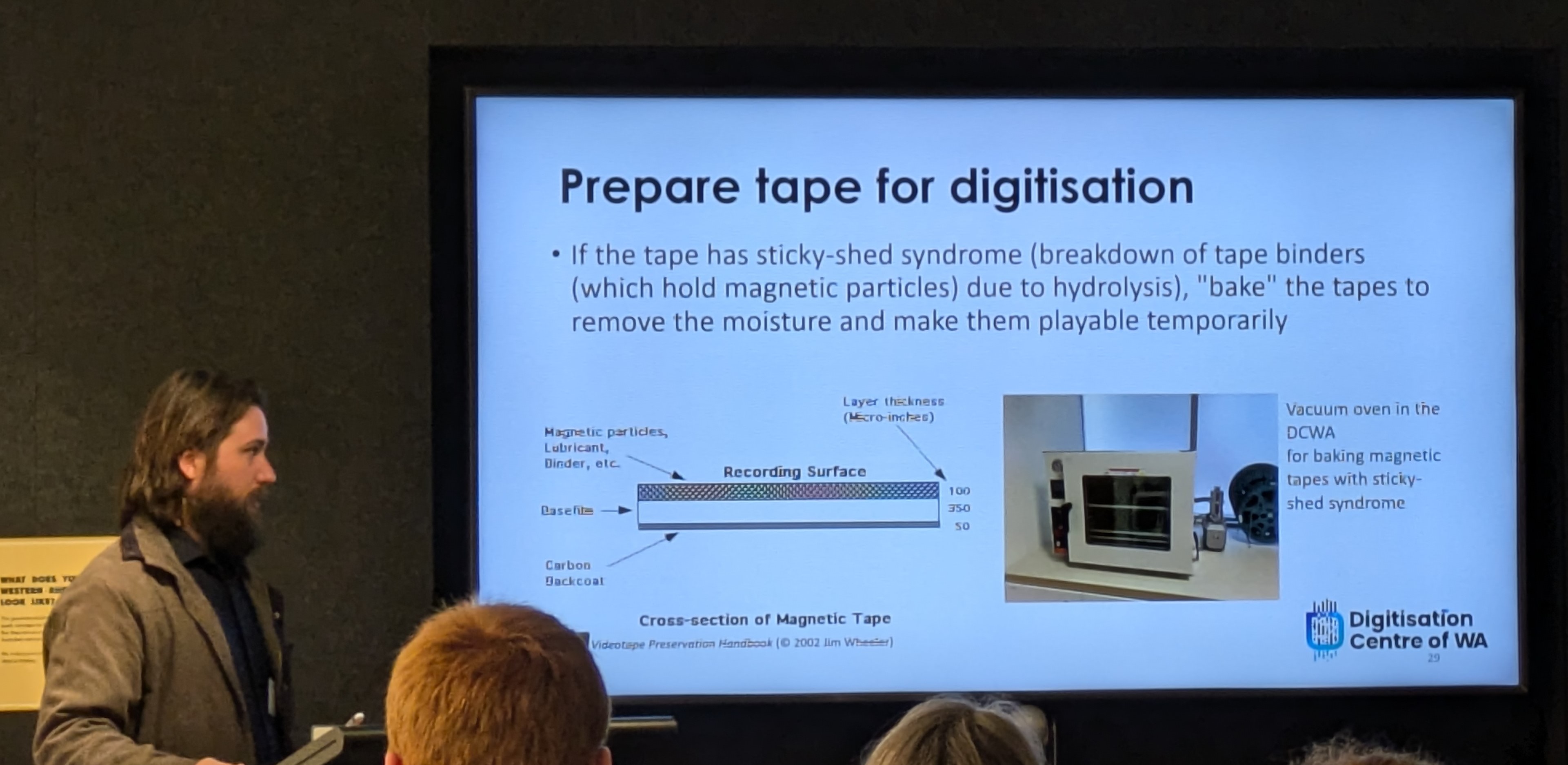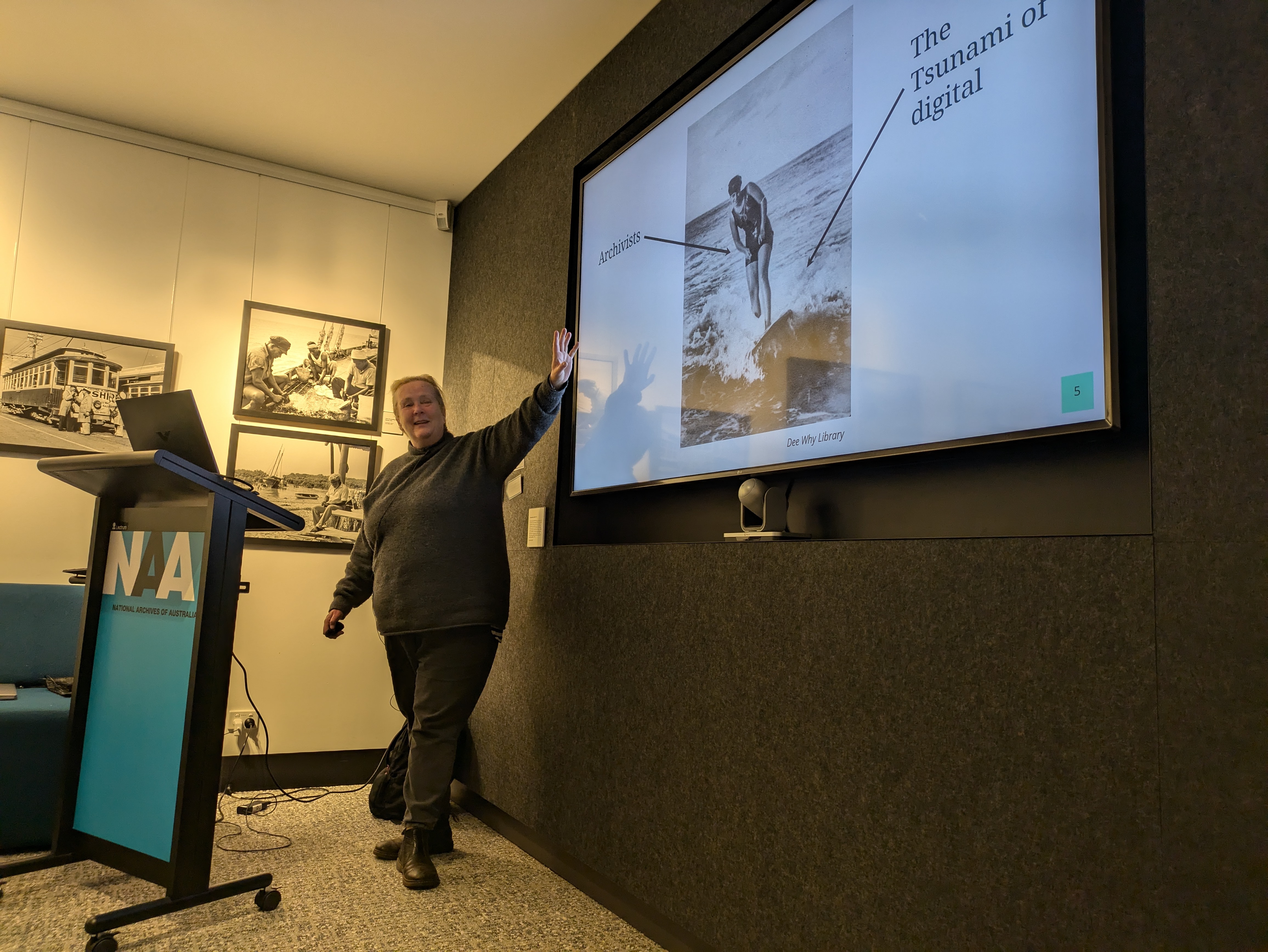On the 2nd August, Meg and I went along to the Australian Society of Archivists (ASA) annual Professional Development Day. This is the third one we’ve attended and presented at, and it’s an important event for us - it means we get to talk to archivists, understand what they are looking for and we get to give something back to that community.
This year, the emphasis was on Audiovisual Archiving and Artificial Intelligence, and we got to present on the latter topic.
The former topic was excellently covered by Ben Chesterman from the National Archives of Australia (NAA), and Jameson Feakes and Debra Paisley from the Digitisation Centre of Western Australia (DCWA). In the morning they provided some great talks about what they are doing in their organisations, with Ben leading the NAA’s Digital Audiovisual Preservation team and Debra and Jameson working at the DCWA. There were some great learnings from these talks and it really was in the spirit of collaboration across the industry - knowing you can call on these people to ask questions in the future is a great outcome alone.

After lunch the presentations became more technical, and Jameson and Ben gave excellent overviews of the tools that they use and the challenges they face. Learning about challenges like baking tapes so that they can be digitised, or open source tools like FFmpeg and Handbrake, or even about the different types of hashes to be used in fixity checking, was a really nice practical way to get some good bootstrapping for people looking to do audiovisual digitisation themselves.

Meg was up for the last part of that session, giving our presentation about Artificial Intelligence (AI) and the implications for Archives. We had been asked to talk about AI generally, talk about some examples and especially what we’ve been working on in some of our AI projects, such as our work with the Queensland State Archives with our Clio system. So that’s what we did - our talk is attached here as a PDF if you’d like a look.

To end the day there was a Q&A panel about the day with Ben, Jameson, Debra and myself up to answer questions from people. That was a fun discussion - the NAA venue is really neat for this sort of small group discussion and it was a good way to finish the event with some interesting questions about AI generally, how AI might impact society, how the digitisation centre works and even how environmentally sustainable things like the cloud and AI are.
We enjoyed being at the event, and hopefully we helped remove some of the myths around AI, and were able to help people understand that this is just a tool for assisting us all in doing our work - and we need to be able to embrace it and learn how to use it in the future. There will be much more on AI coming in the archiving sector, and we’re looking forward to showing how it can be ethically, effectively and efficiently used.
The ASA’s WA committee does a great job of listening to their members and putting on specific topics that are of interest to them. And it is a real testament to the WA committee members who were so heavily involved in the event that the day went so smoothly - special thanks to Mark Brogan, Rebecca Balling, Roslyn Smith, Annie Cameron, Jill Jones and Ros Malone for making our job of presenting so simple.
The next few months will see us at a few more archiving events, so stay tuned for more blogs on these topics! In the meantime, if you have any questions, please feel free to contact us or start a conversation with us on our social media channels.
Piers